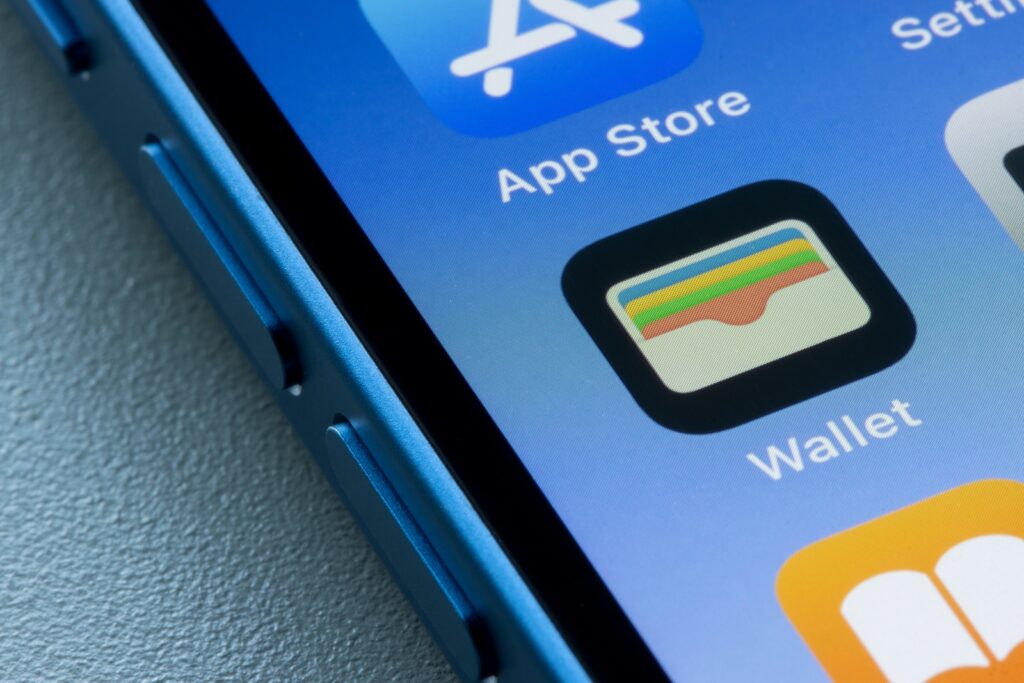While the access control market has typically been slow to embrace advanced mobile technologies, tech giant Apple inc could drive change in the market according to our latest research. Apple opened up its Wallet feature for third-party app developers which will have big implications for mobile access credentials. The move has triggered a range of new smartphone and smartwatch applications for mobile access control in buildings, campuses, and even vehicles, and this trend is set to grow in 2023 as the wider market begins to seize new opportunities.
“In a move that looks set to shake up the mobile credentials market, Apple have now opened up their wallet technology to app developers, and now support various types of access from Apple Wallet, such as hospitality, corporate badges, student IDs, home keys and car keys,” reads our new physical security market study. “At the 2021 Worldwide Developer Conference, Apple first revealed its plans to update its Apple Wallet service, showing how Apple devices will be able to store driver’s licenses, state IDs, and other credentials in its encrypted ecosystem.”
The Apple Wallet was already allowing users to store bank cards, public transport tickets, and selected access passes, such as Disney’s theme parks for example. The firm also had a partnership with residential ACaaS solution provider Latch, as well as security industry stalwart Assa Abloy, to allow integration with their access control products and services. However, this still represented a very limited scope relative to the potential market for such a dominant player in the mobile technology market.
According to December 2022 data on smartphone market shares in the US, Apple commands the biggest piece of the pie, with 55.79%, a whopping 25% more than its nearest competitor Samsung, with 29.85%. Meanwhile, the company’s position in the smartwatch market is even more significant, with an incredible 91.9% market share in North America, according to research by CUJO AI. While access control has not been seen as a major focus for the tech giant, its market penetration may make it a highly disruptive force for the market.

“Given its market positioning, focus on encryption technology, and track record for market disruption, Apple could conceivably become a predominant player in the mobile access market by controlling the identity component of access control through their device log-in (be it passcode or face identification),” states the research report. “Although their impact on the market has been mostly felt in the residential building vertical to date, since the Apple announcement, several Hyatt Hotels and a number of US offices have already made the switch to Apple Wallet-based access control.”
Apple Wallet-Based Access Control: Benefits & Limitations
Mobile-based access control can offer several benefits for both facility owners and occupants, namely the fact that essentially everyone now carries a smartphone and they carry it all the time, while traditional cards and fobs are often forgotten. With mobile-based credentials, security administrators can instantly add or revoke permissions, activate lockdowns and issue guest passes via user management software, without any face-to-face interaction. The pin and biometric security elements on mobile also act as a further layer of security, while the device can serve as a secure access system for multiple facilities simultaneously, making it much more convenient for the user.
Mobile access also has distinct limitations and challenges, however, not least the cost and complexity of implementing mobile credentials relative to more traditional access control methods. While smartphones are commonplace, depending on everyone to have a suitable device can raise issues of inclusivity, while many with smartphones may be opposed to downloading work-related applications onto their personal devices. Furthermore, mobile phones can act as another potential point of vulnerability in an organization's security, vulnerabilities in the software on the phone could conceivably lead to hacking events. These issues likely represent hurdles for the market to overcome rather than insurmountable barriers.
“Most analysts do not expect mobile based access control to entirely replace the use of traditional card-based systems in the medium term, as concerns over cybersecurity and app performance may prevent some facility owners from fully migrating away from traditional systems,” our comprehensive new market report explains. “In time, mobile clearly has the potential to replace cards as the predominant form of access control credentials, but whether this will take a few years or a decade remains to be seen.”



